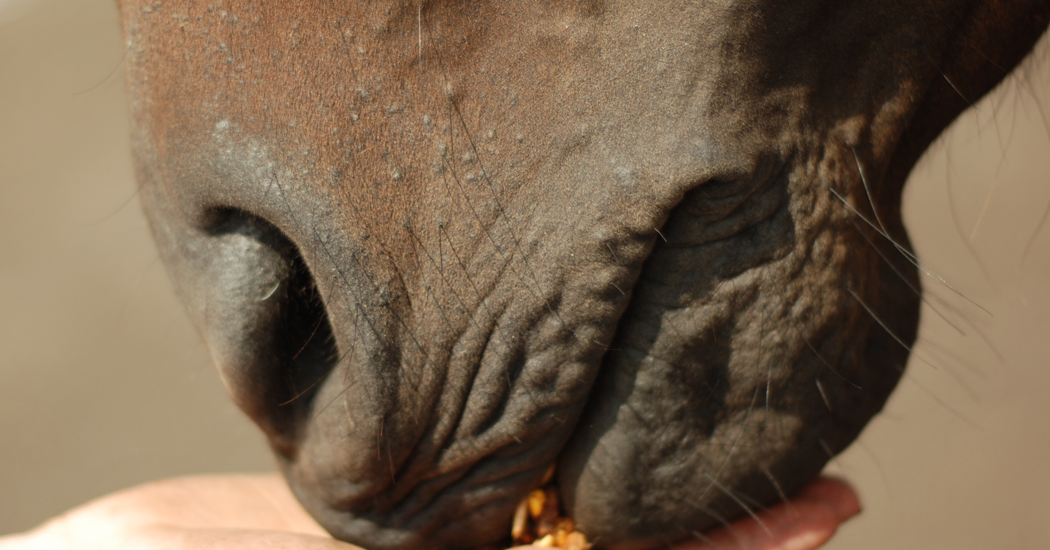Sugar tends to get a lot of bad press, but many horse owners forget that horses have evolved on a diet containing relatively high levels of sugar at certain times of the year. Even grass hay provides quite a lot of sugar when fed in quantities needed to provide sufficient fibre so whilst monitoring sugar intake is important, a sugar free diet is not possible to achieve! Unless the producer of a feed makes a specific claim about the level of sugar in their feed, they are not legally obliged to declare the level of sugar on the bag. You can usually find out more about the levels of sugar in a feed by contacting the producer and looking at their website. So what are the common sources of sugar in horse’s diets?
Grass
The greatest source of sugar for most horses is grass. Although it can be difficult to know exactly how much sugar your horse consumes, grass can contain up to 7.5% simple sugars which means a 350kg pony could consume 1.3kg per day. contribute Many horses and ponies can graze happily on grass but as an increasing number of leisure horses and ponies are overweight or have EMS, access should be restricted.
Molasses
Molasses is added to mixes and chaffs to increase palatability and is sourced from sugar beet or sugar cane. The beet or cane is crushed and soaked in warm water and the molasses is formed when the sugars dissolve and crystallise out. Not all the sugar is removed though and the thick, sweet brown liquid that is left is molasses. Although molasses free horse feeds are commonly used to help achieve a low sugar diet, a small amount of feed containing a small amount of molasses is often appropriate to use and may be particularly useful to help hide medication being supplied in the feed.
Carrots
If carrots are fed in moderation, i.e. as a succulent rather than by the bucketful, the amount of sugar they contribute is low. Consisting of around 85% of water, any sugar carrots contain is very diluted and so a huge amount of carrots would need to be fed to make a difference.
Other Things To Consider About Sugar
- Most fibrous materials including straw will contain some sugar.
- No added sugar is a more accurate term than sugar free for feeds.
- If a company declares a sugar level this should refer to the simple sugars and would not include storage sugars such as fructan.
- Water soluble carbohydrates (WSC) includes storage sugars such as fructan and so will be a higher value than simple sugars.
- Sugar levels declared by a company are a typical value – there will be some variation in levels for every product no matter who produces it. A difference of 1 or 2% in declared levels between products makes very little difference as the actual level in the bag could easily vary that much between batches.
- It is important to consider how much feeds weigh to know how much sugar they are going to supply your horse – a whole Stubbs scoop is only 300-500grams of most fibre-based chops or chaffs. If that feed is 10% sugar it supplies 30-50grams of sugar. A section of hay (approx. 2kgs) containing 12% sugar provides 240grams of sugar. You could feed 5 to 8 scoops of the fibre feed and provide the same amount of sugar as one section of hay.
- How much sugar is safe for your horse depends on your horse’s condition and physiological status. It is recommended that horses that are overweight, suffering with insulin dysregulation, prone to laminitis or with PPID should be fed less than 12% non-structural carbohydrate (NSC) in the total diet. NSC refers to sugar, WSC and starch. This would effectively mean very little if any pasture can be consumed and a mature, highly fibrous forage should be used.
If you would like to find out more about where sugar comes from in your horses’ diet, get in touch with an equine nutritionist.

